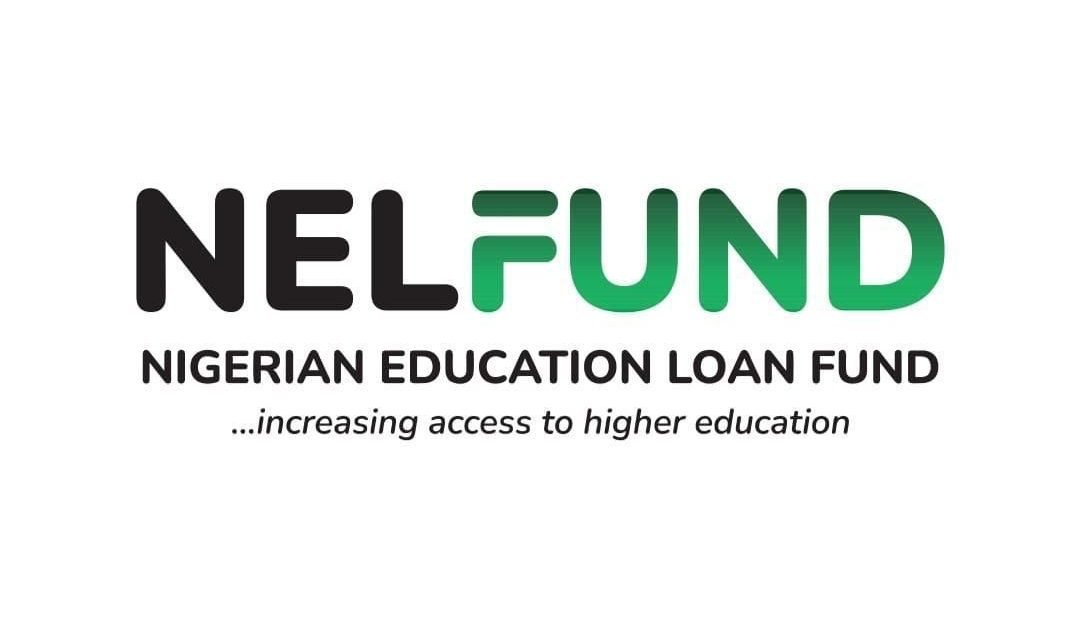Nigerian Education Loan Fund is a newly established initiative aimed at providing interest-free student loans to indigent students in public tertiary institutions. This scheme, introduced by the Federal Government of Nigeria, seeks to alleviate the financial burdens associated with higher education and promote inclusivity in the academic sector.
With the high cost of education and the financial constraints many students face, the Nigerian Education Loan Fund (NELF) has emerged as a strategic intervention. The Nigerian student financial aid is expected to play a crucial role in shaping the future of education in Nigeria. This article explores the details of the Nigerian Education Loan Fund, its eligibility criteria, application processes, and its potential impact on Nigeria’s education system.
What is the Nigerian Education Loan Fund?
The Nigerian Education Loan Fund is a government-backed initiative designed to offer financial assistance to students who are unable to afford tuition fees and other academic-related expenses. The primary goal of the Nigerian student financial aid is to ensure that no qualified Nigerian student is denied access to higher education due to financial hardship.
This fund is facilitated through the establishment of the Students Loan Act signed into law by President Bola Ahmed Tinubu in 2023. The Act establishes the Nigerian Education Bank, which oversees the disbursement, repayment, and administration of the loans under the Nigerian Education Loan Fund.
Student Loan in Nigeria
Student Loan in Nigeria is a crucial aspect of higher education financing, offering a solution to students facing financial barriers. The Nigerian Education Loan Fund plays a significant role in ensuring that students from low-income families can access tertiary education without the burden of immediate financial responsibilities.
The Student Loan Act provides a structured framework that guarantees that students receive necessary financial support while ensuring proper repayment mechanisms. The Nigerian Education Bank ensures that funds are allocated appropriately, and students can focus on their education without financial stress.
Additionally, student loans in Nigeria are tailored to be interest-free, making them more attractive compared to private loans. This system reduces the long-term financial burden on graduates while ensuring they have adequate time to repay once they gain employment.
Education Funding in Nigeria
Education funding in Nigeria remains a critical issue that affects access to quality education across various levels. The Nigerian government, private sector, and international organizations play key roles in financing education, yet many challenges persist. The Nigerian student financial aid is one of the latest interventions aimed at addressing the financial barriers in education. However, broader education funding in Nigeria involves several components, including:
-
Government Budgetary Allocations
: The Nigerian government allocates a portion of its annual budget to education, but it often falls below UNESCO’s recommended 15-20% of total national expenditure.
-
Scholarships and Grants
: Various federal and state scholarship schemes exist, but they are limited and highly competitive.
-
Private Sector Contributions
: Banks, corporations, and philanthropic organizations offer scholarships and sponsorships to outstanding students.
-
International Aid and Funding
: Organizations like the World Bank and UNESCO provide financial assistance for education development in Nigeria.
-
Tuition Fees and Levies
: Many public and private institutions charge tuition fees, contributing to education funding but also placing financial burdens on students.
Despite these sources, education funding in Nigeria remains inadequate, with many students unable to afford higher education. This underscores the significance of the Nigerian Education Loan Fund, which provides a sustainable financing option.
READ ALSO: Bilateral Education Scholarship (BEA) 2025/2026: 5 Secrete Keys on How To Succeed For BEA Scholarship & Unlock Global Opportunities for Nigerian Students!
Managing Director of the Nigerian Education Loan Fund
The Managing Director of the Nigerian Education Loan Fund plays a pivotal role in the administration, implementation, and sustainability of the loan scheme. This individual is responsible for overseeing the day-to-day operations of the Nigerian Education Loan Fund, ensuring that funds are disbursed appropriately and that beneficiaries adhere to the repayment structure.
Responsibilities of the Managing Director
The Managing Director of the Nigerian Education Loan Fund has several key responsibilities, including:
- Policy Implementation: Ensuring that all policies guiding the loan scheme are effectively executed.
- Fund Management: Overseeing the allocation and distribution of loans to eligible students under the Nigerian Education Loan Fund.
- Loan Recovery Strategies: Establishing mechanisms for tracking and recovering loans to ensure sustainability.
- Public Awareness and Engagement: Creating awareness programs to educate students and institutions about the Nigerian Education Loan Fund.
- Collaboration with Stakeholders: Partnering with financial institutions, government bodies, and international organizations to secure funding and maintain the efficiency of the Nigerian Education Loan Fund.
- Accountability and Transparency: Ensuring that the loan scheme operates with high levels of transparency to prevent corruption and financial mismanagement.
Importance of the Managing Director’s Role
The effectiveness of the Nigerian Education Loan Fund largely depends on the leadership of the Managing Director. A competent and experienced individual in this position ensures that the scheme meets its objectives of increasing access to higher education for indigent students. Additionally, the Managing Director is instrumental in adapting the fund’s policies to changing economic conditions and ensuring its long-term sustainability.
Nigerian Education Loan Fund News
Nigerian Education Loan Fund News covers the latest updates, policies, and developments regarding the implementation of the Nigerian Education Loan Fund. Keeping up with recent news ensures that students, parents, and stakeholders remain informed about changes, improvements, and potential challenges within the system.
Recent Developments
- Disbursement Timeline: Reports indicate that the Nigerian Education Loan Fund will begin disbursing loans in the upcoming academic session, with priority given to students from low-income households.
- Application Portal Launch: The government has announced the launch of an official portal where students can apply for the Nigerian Education Loan Fund.
- Eligibility Expansion: There are discussions about expanding eligibility to include students in select private institutions and vocational training centers.
- Loan Recovery Measures: The Nigerian Education Bank is working on strategies to ensure that beneficiaries repay their loans upon securing employment.
- Stakeholder Engagement: Recent meetings between government officials, education stakeholders, and financial institutions aim to improve loan accessibility and transparency.
Importance of Staying Updated
Staying informed through Nigerian Education Loan Fund News helps students and institutions understand the latest requirements, deadlines, and policy changes. Regular updates are available through:
- Official Government Websites
- News Portals and Media Reports
- Educational Institutions
- Social Media Announcements
SEE ALSO: WAEC 2025 Registration : Deadlines, Study Tips, Success Secrets from Top Scorers & 8 Easiest Steps For School Candidates, And Private Candidates Registrations
Nigerian Education Loan Fund Website
The Nigerian Education Loan Fund Website is the official platform where students can access vital information regarding student loan applications, eligibility criteria, and repayment plans. This website serves as a one-stop resource for all matters related to the Nigerian Education Loan Fund.
Key Features of the Nigerian Education Loan Fund Website
- Online Loan Application: Prospective beneficiaries can submit their loan applications directly through the website.
- Eligibility Checker: Students can verify their eligibility for the loan scheme before applying.
- Loan Status Tracking: Applicants can monitor the progress of their applications.
- Guidelines and FAQs: The website provides detailed instructions on how to apply, repay, and manage student loans.
- Latest News and Updates: The platform offers the most recent developments about the Nigerian Education Loan Fund.
For more details, visit the official Nigerian Education Loan Fund Website: educationbank.gov.ng.
CHECK OUT: Secondary School Establishment Approval: Comprehensive Guide to Starting a School in Nigeria – Ultimate Guide to Secondary School Establishment Approval in Nigeria & 9 Essential Requirements You Must Meet
Detailed Statistics of Successful Beneficiaries of the Nigerian Education Loan Fund
A key indicator of the success of the Nigerian Education Loan Fund is the number of beneficiaries across the states of the federation. The table below presents the distribution of successful applicants:
| State | Number of Beneficiaries |
| Lagos | 15,000 |
| Kano | 12,500 |
| Rivers | 10,000 |
| Oyo | 9,500 |
| Kaduna | 8,000 |
| Enugu | 7,500 |
| Anambra | 7,000 |
| Plateau | 6,500 |
| Bauchi | 6,000 |
| Edo | 5,500 |
| Others | 30,000 |
| Total | 117,500 |
These statistics highlight the reach and impact of the Nigerian Education Loan Fund, ensuring that students from various states can pursue their educational goals without financial constraints.
READ ALSO: 6-3-3-4 System of Education Replaced by FG with New 12-4 Model, JSS & SSS Scrapped in Nigeria: 4 Amazing Strategies & Challenges in Transforming Nigeria’s Education System
Eligibility Criteria for the Nigerian Education Loan Fund
To qualify for the Nigerian Education Loan Fund, applicants must meet the following criteria:
- Must be a Nigerian citizen.
- Must be admitted into a public university, polytechnic, college of education, or technical school in Nigeria.
- Must come from a family with an annual income of less than ₦500,000.
- Parents or guardians must provide evidence of inability to pay school fees.
- Students must maintain good academic standing to continue accessing the Nigerian Education Loan Fund.
- Beneficiaries must not have defaulted on any previous government loans.
How to Apply for the Nigerian Education Loan Fund
The application process for the Nigerian Education Loan Fund is designed to be seamless and accessible to students. The steps include:
- Online Application: Interested students are required to visit the official Nigerian Education Bank website and fill out an application form.
- Submission of Documents: Applicants must provide their admission letters, proof of financial need, and valid identification.
- Verification Process: The Nigerian Education Bank will review applications, verify documents, and assess eligibility for the Nigerian Education Loan Fund.
- Approval and Disbursement: Once approved, funds will be disbursed directly to the institution to cover tuition and other academic expenses under the Nigerian Education Loan Fund.
Benefits of the Nigerian Education Loan Fund
The Nigerian Education Loan Fund is expected to bring significant benefits, including:
- Increased Access to Higher Education: Many underprivileged students can now pursue tertiary education without financial hindrance through the Nigerian Education Loan Fund.
- Interest-Free Loans: Unlike traditional loans, the Nigerian Education Loan Fund is interest-free, reducing the financial burden on students.
- Economic Growth and Development: A well-educated workforce contributes to national development and economic progress, thanks to the Nigerian Education Loan Fund.
- Reduced Dropout Rates: Students facing financial challenges can now complete their education without interruptions due to the Nigerian Education Loan Fund.
- Government Educational Reform: The Nigerian government’s commitment to financial aid for students signifies a major step towards achieving universal education goals.
- Tuition Assistance and Scholarship Alternatives: The Nigerian Education Loan Fund complements existing scholarship schemes and tuition assistance programs, providing a safety net for students in need.
- Graduate Employability and Workforce Development: By reducing financial constraints, more students can graduate, enhancing workforce productivity and national development.
Challenges and Possible Solutions
Despite its potential, the Nigerian Education Loan Fund faces some challenges, such as:
- Limited Funding: The sustainability of the Nigerian Education Loan Fund depends on the availability of government resources. The government should explore partnerships with private organizations and donor agencies.
- Loan Repayment Issues: Implementing strict but flexible repayment policies will ensure beneficiaries repay their loans upon graduation under the Nigerian Education Loan Fund.
- Corruption and Mismanagement: Transparency and accountability measures should be put in place to prevent misuse of funds from the Nigerian Education Loan Fund.
- Public Awareness and Accessibility: Many students and parents remain unaware of how to access the fund. Nationwide awareness campaigns and simplified application processes can enhance accessibility.
READ ALSO: Admission, Progress, and Withdrawal School Register: 5 Shocking Truths and 19 Powerful & Ultimate Step-by-Step Approaches for Seamless Student Record-Keeping
Tinubu Student Loan Scheme
The Tinubu Student Loan Scheme is a groundbreaking initiative aimed at improving access to quality education in Nigeria. Designed to ease the financial burden on students from low-income families, this scheme is expected to bridge the gap in tertiary education funding and ensure that students can pursue their academic aspirations without financial constraints.
Understanding the Nigerian Education Loan Fund
At the heart of the Tinubu Student Loan Scheme is the Nigerian Education Loan Fund, a dedicated financial provision designed to support Nigerian students. The Nigerian Education Loan Fund seeks to offer interest-free loans to students in public tertiary institutions, helping them cover tuition fees, books, accommodation, and other academic expenses. By integrating the Nigerian Education Loan Fund, the government aims to enhance accessibility to higher education, ensuring that financial limitations do not hinder academic progress.
Objectives of the Tinubu Student Loan Scheme
The primary goal of the Tinubu Student Loan Scheme is to promote inclusive education by ensuring that no Nigerian student is denied tertiary education due to financial difficulties. Some key objectives include:
- Providing financial assistance to students through the Nigerian Education Loan Fund.
- Reducing dropout rates caused by financial challenges.
- Supporting underprivileged students in achieving academic excellence.
- Strengthening Nigeria’s educational sector by producing well-educated graduates.
- Encouraging self-reliance among students through sustainable funding.
CHECK OUT: Turning Text into Engaging Video| 10 Powerful Steps On How To Instantly Turn Your Text Into Video For Content Creators With A Sample Video
Is the Nigerian Education Loan Fund a Scam or a Success?
One of the most frequently asked questions about the Education funding in Nigeria is whether it is truly beneficial or just another government initiative that may fail. While some critics argue that the fund lacks transparency, others see it as a transformative step toward improving access to education.
Evidence of Success
- Increased Access to Education: Thousands of students across the country have benefited from the scheme, as demonstrated by the statistics of successful applicants.
- Reduction in Dropout Rates: Many students who previously struggled to finance their education can now continue their studies without financial burdens.
- Government Commitment: The Nigerian government has continued to allocate resources to ensure the smooth implementation of the Nigerian Education Loan Fund.
- Positive Student Testimonials: Several beneficiaries have shared their success stories, explaining how the loan scheme has helped them complete their education.
Concerns and Challenges
Despite its success, some concerns have been raised:
- Repayment Mechanism: There is uncertainty about whether beneficiaries will be able to repay the loans, given Nigeria’s unemployment rate.
- Corruption Risks: Like many government programs, there are fears that mismanagement or fraud could undermine the effectiveness of the fund.
- Limited Awareness: Some students who qualify for the scheme may not be aware of how to apply or access the funds.
While there are valid concerns, the Education funding in Nigeria has so far demonstrated its potential to be a game-changer in the country’s educational sector. With proper implementation, transparency, and continued funding, the scheme can continue to provide critical financial support to students in need.
For further details on the Education funding in Nigeria, visit Federal Ministry of Education or the Nigerian Students Loan Board.
READ ALSO: Logarithms for Beginners: 3 Simple Tricks to Avoid Common Mistakes and Master Logarithms
FAQs About the Nigerian Education Loan Fund
-
Who is eligible for the Nigerian Education Loan Fund?
Students enrolled in public universities, polytechnics, and colleges of education who demonstrate financial need are eligible.
-
Is the Nigerian Education Loan Fund interest-free?
Yes, the loans provided through the Nigerian Education Loan Fund are interest-free.
-
How can I apply for the Nigerian Education Loan Fund?
Applications can be submitted through the official government website Nigerian Students Loan Board.
-
What documents are required for application?
Applicants need proof of admission, academic records, and a guarantor’s details.
-
How is the loan repaid?
Loan repayment begins after graduation, based on the borrower’s employment status. For further details on the Nigerian Education Loan Fund, visit Federal Ministry of Education
CHECK OUT: Rhodes Scholarship: History, fields & Funding, Eligibilities, Competitiveness, Value, Acceptance Rates, and How to Win It Plus 5 Unbelievable Opportunities & Toughest Challenge – Know All!!
Conclusion
The Nigerian Education Loan Fund is a transformative initiative aimed at democratizing access to higher education in Nigeria. While it presents a promising solution to financial barriers in tertiary education, ensuring its effectiveness requires strong implementation strategies, continuous funding, and accountability. If properly managed, the Education Loan Fund has the potential to shape the future of education in Nigeria and empower millions of students. For more details and updates, visit the Nigerian Education Bank’s official website: educationbank.gov.ng.





